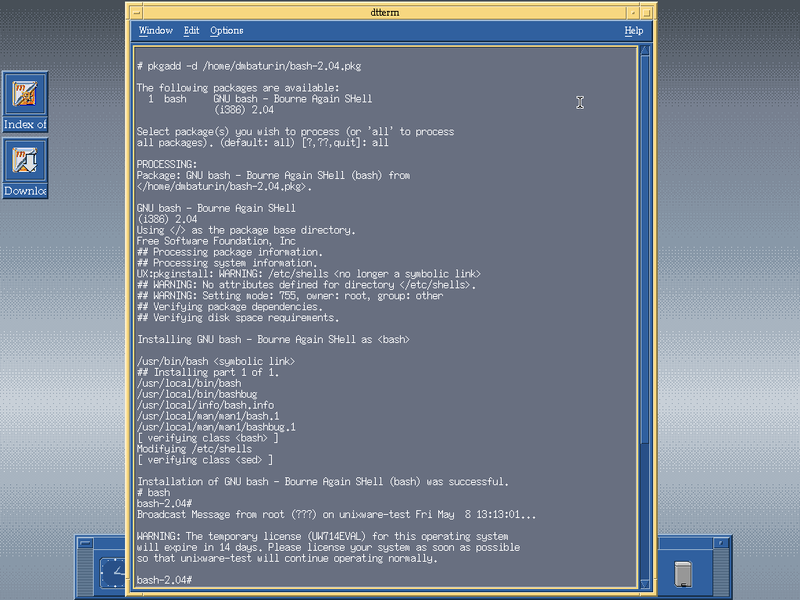UnixWare 7.14 (2015)
SCO (now Xinuos) is widely known for its attemtps to sue IBM over intellectual property allegedly transferred to Linux authors.
So, why not look at their own offerings? They have two seemingly distinct OS products, UnixWare and OpenServer. This time we'll look at UnixWare, which is apparently older and has a distinctive old proprietary UNIX feel.
Installation image is available from their website, a 14 day trial license included.
UnixWare 7.1 is the latest release which is still sold by Xinuos, not a historical version. The 7.1.4+ release was made in 2013, and a 7.1.4 Definitive release followed it in 2015, but generally it hasn't changed much since 2004.
Booting from the installation CD.
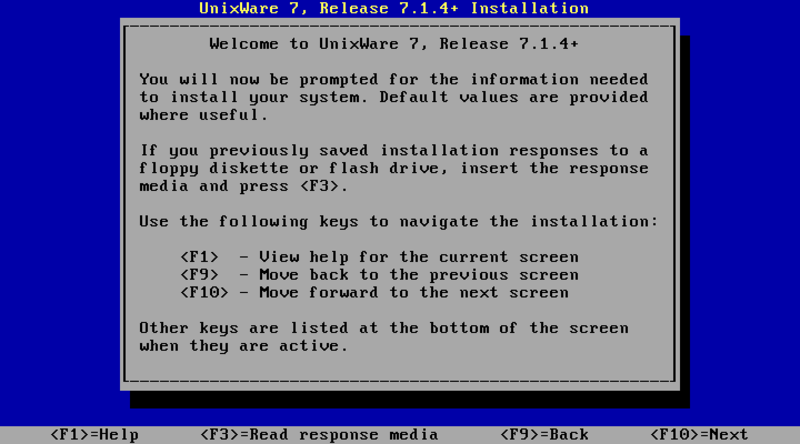
After accepting the license, we are told about a yearly subscription. I didn't bother to find out what it costs.
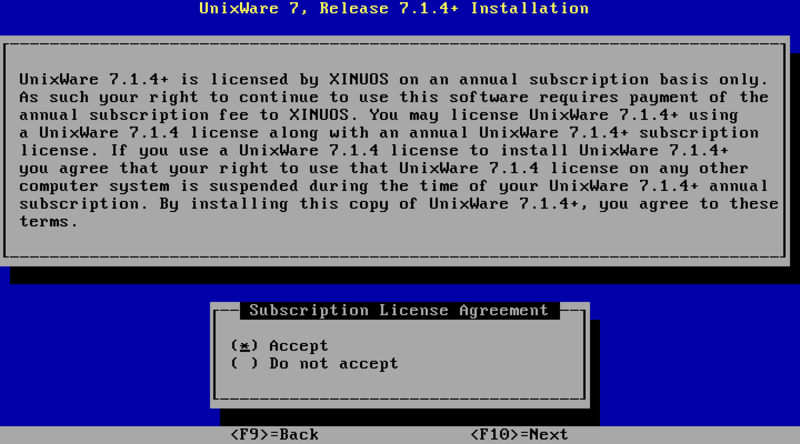
Yes, trial is what I want.
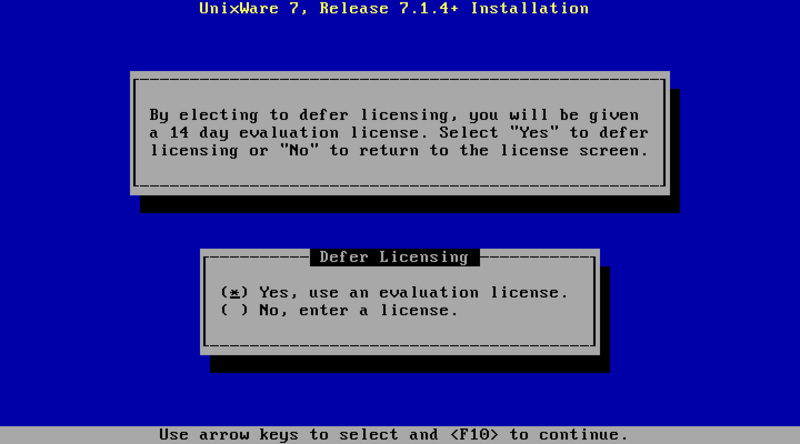
Does anyone even remember that Ethernet had different framing types?
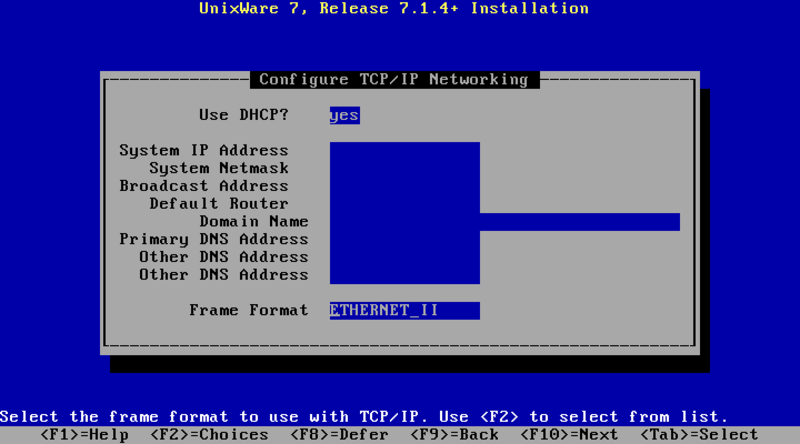
Now watch the progress bar. Doesn't take too long.
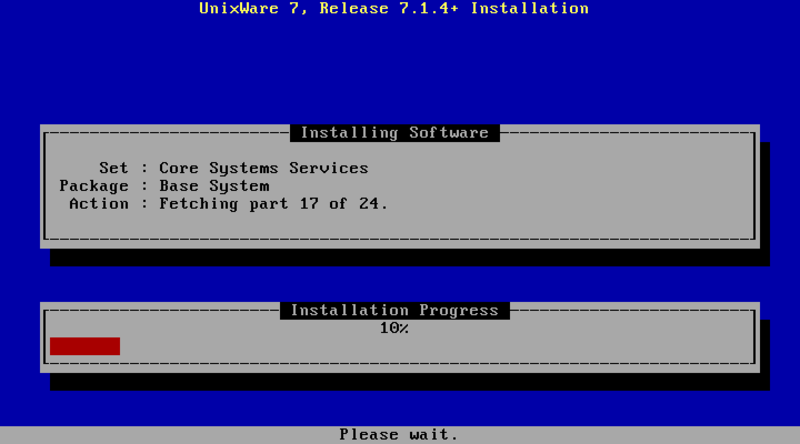
Complete.
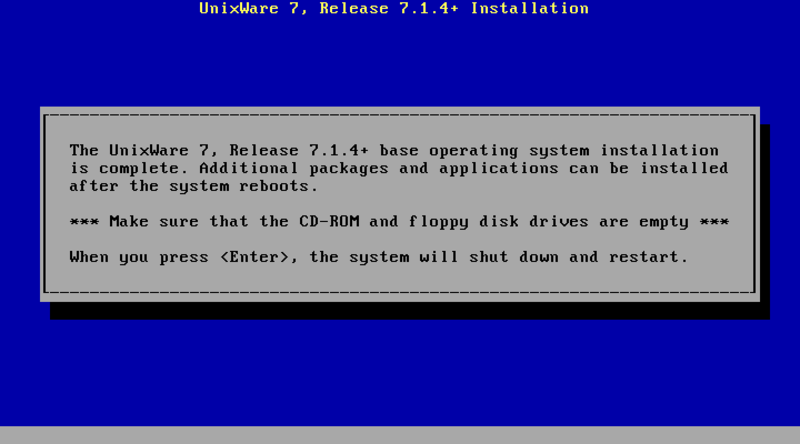
Login screen, now with Xinuos logo instead of SCO logo. In most other places SCO logos are intact though.
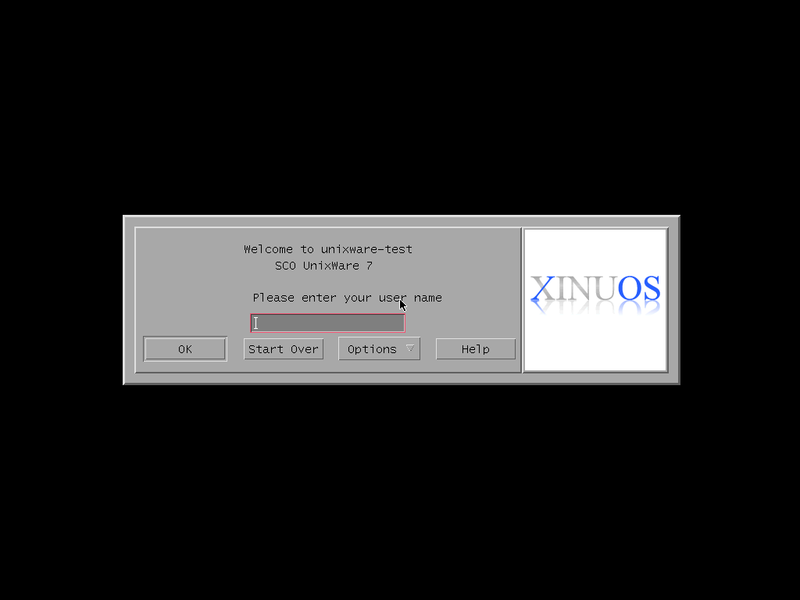
Every time you login, you are reminded of the license.
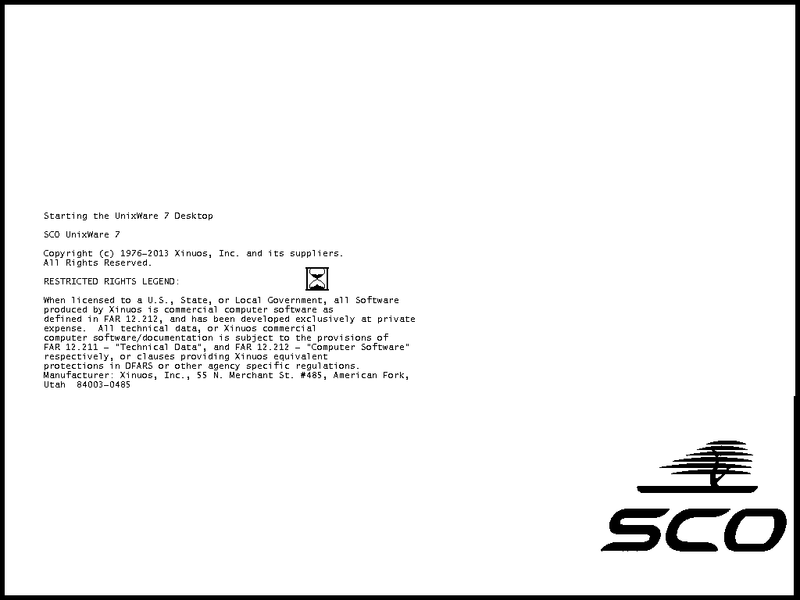
CDE desktop.
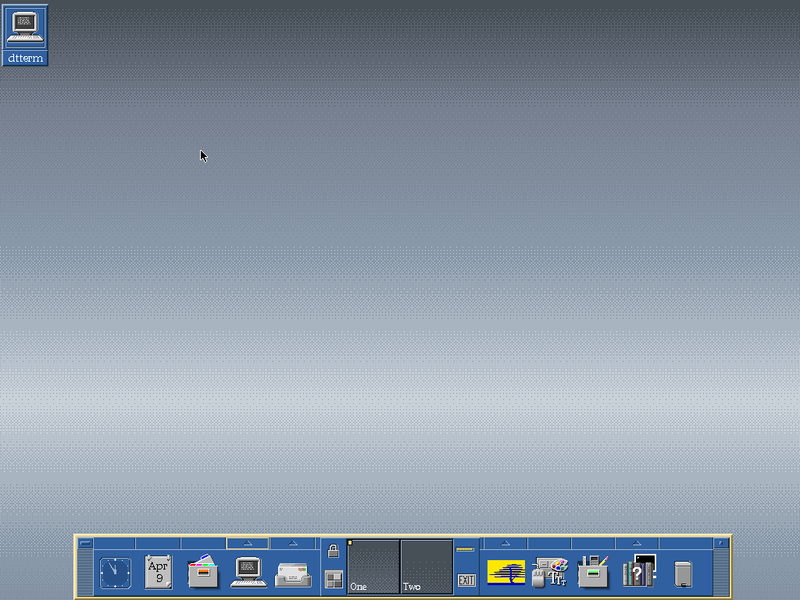
CDE's default terminal emulator, dterm. The default shell is ksh. No completion, no history.
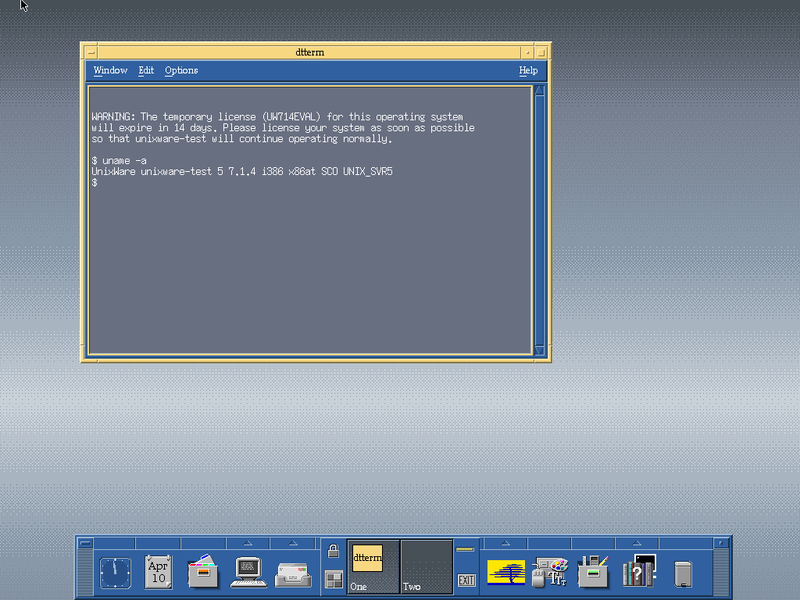
I'm not sure if this happens only with generic VESA driver, but color rendering is odd. With default settings, if you start a non-Motif application, all Motif widgets and window decorations are displayed like this.
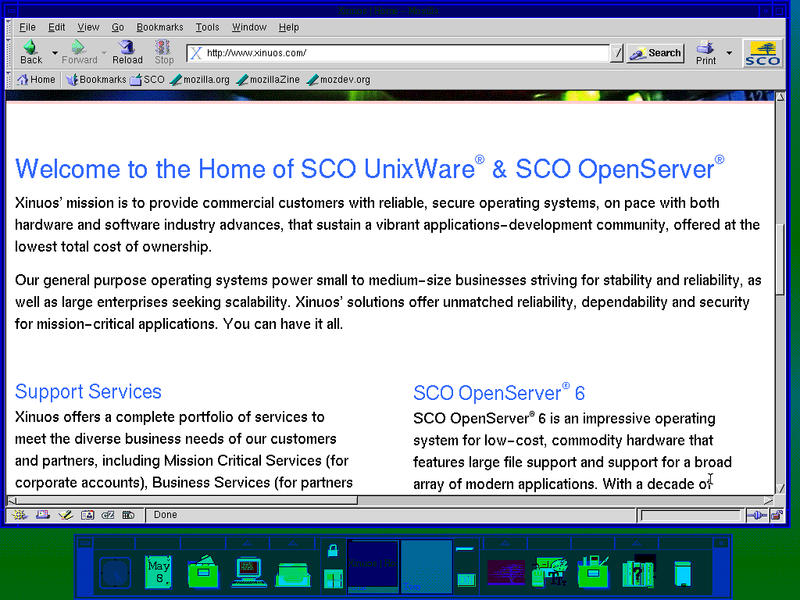
Color display is configurable (presence of this option makes me think this problem is not graphics card specific).
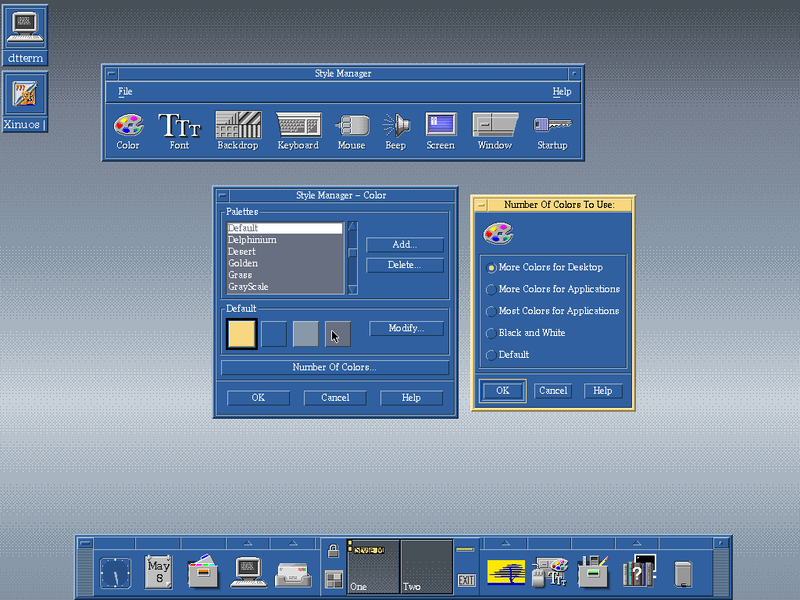
Most color for applications gives the most comfortable look. Although this is hardly a problem for a system that is usually run headless, Solaris and other systems that used CDE didn't have it.
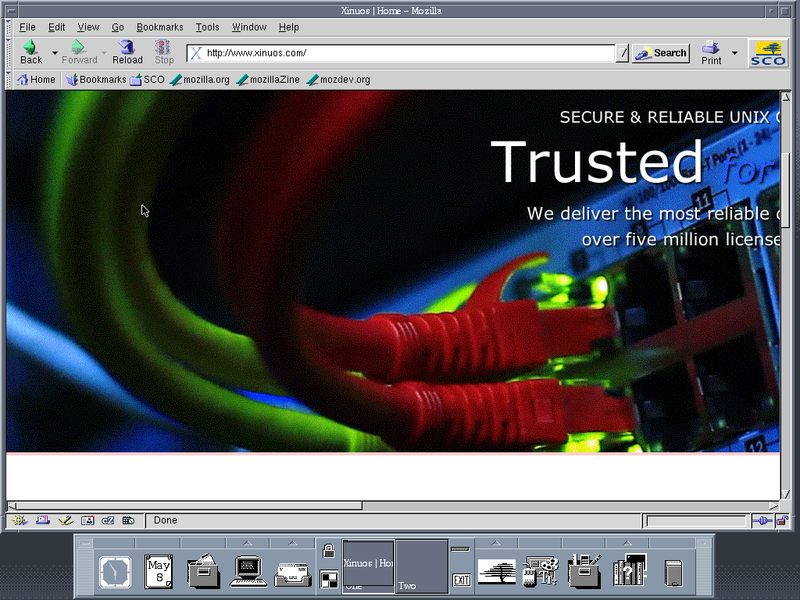
Also, it's Mozilla 1.7.13, straight from 2005.
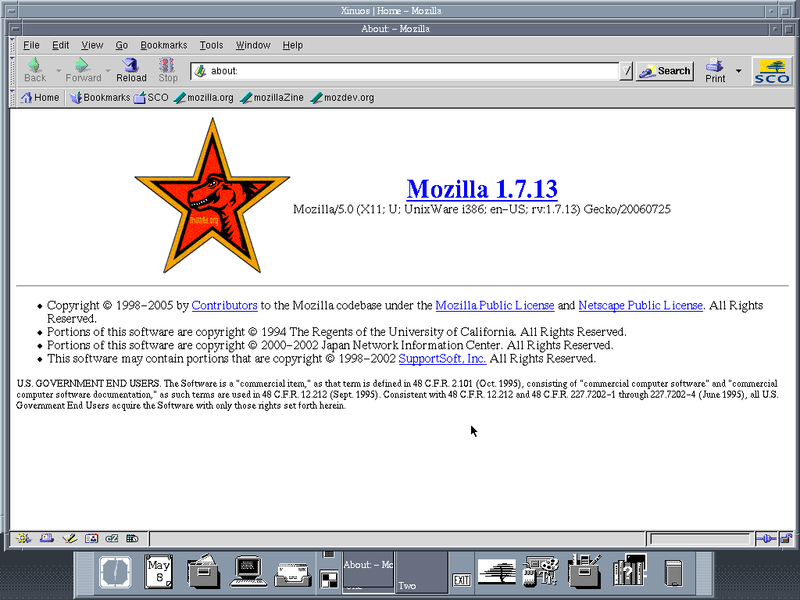
There's a graphical configuration utility.
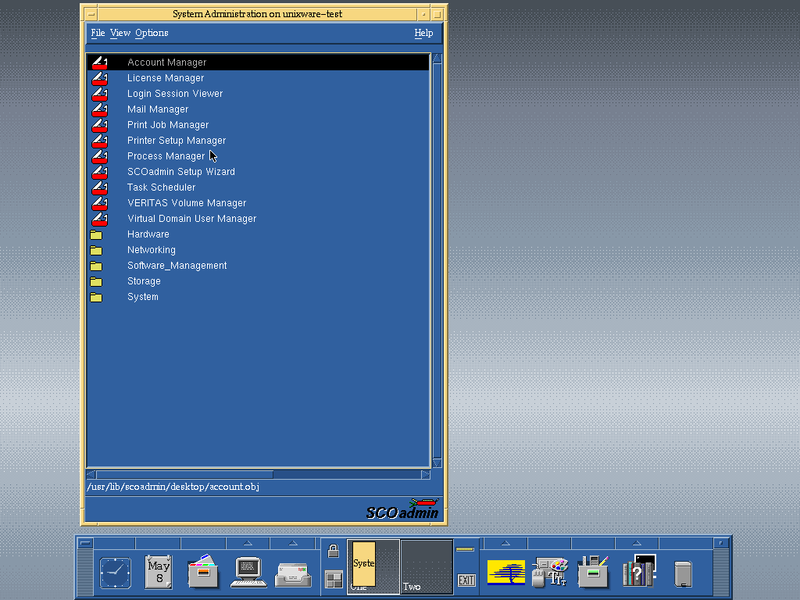
A number of applets is available, e.g. this one for IPfilter.
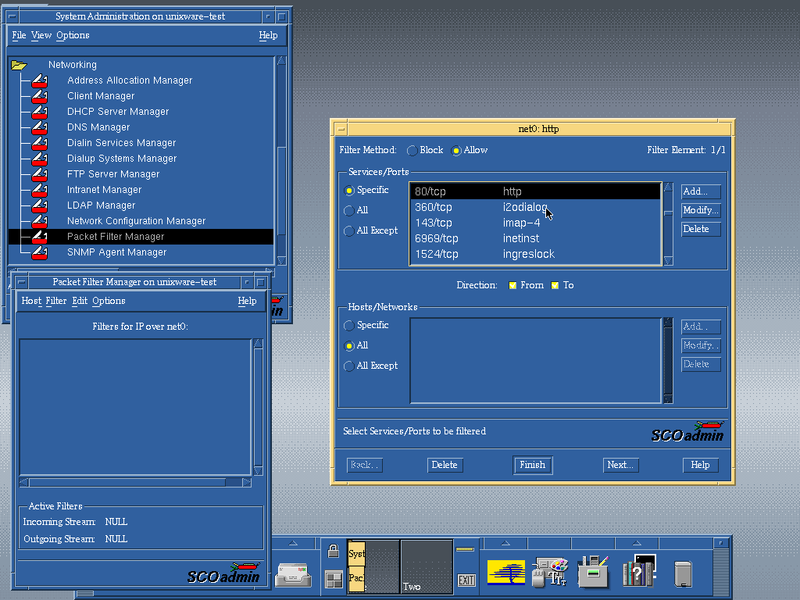
Some of them fail to start. Maybe I did something wrong, not sure.
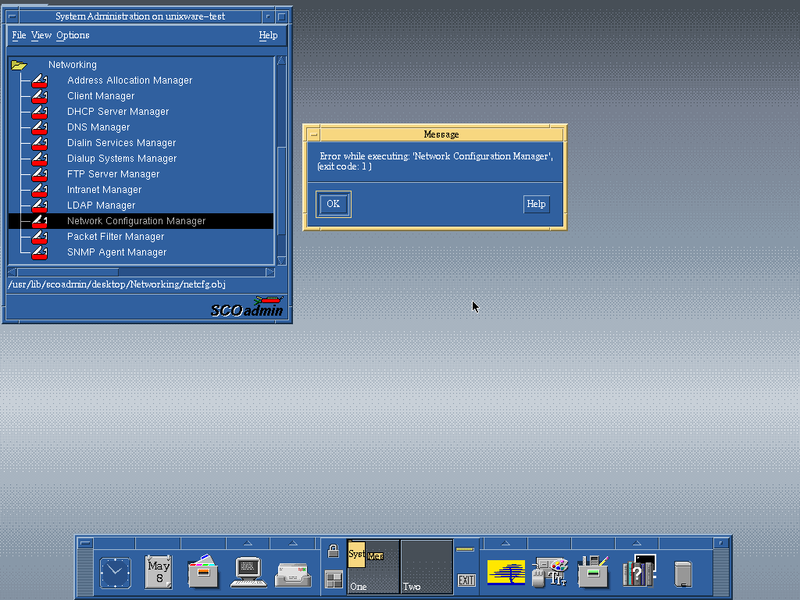
There's Skunware, a package collection. There is no easy way to setup packages over the Internet, so I've just downloaded some. Most packages are very outdated, maybe there are newer packages, but I couldn't find any.
There's a graphical package manager frontend, although it didn't see downloaded packages in my home dir.
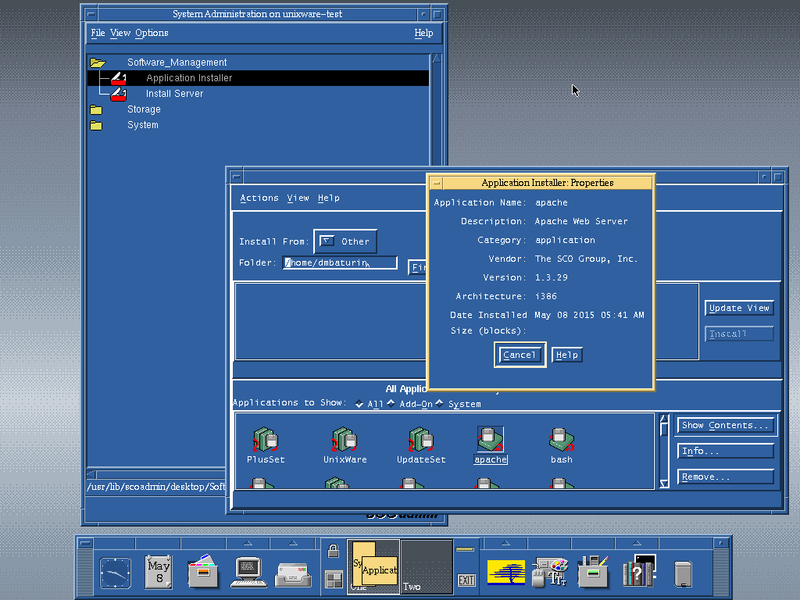
Plain old pkgadd works though.
